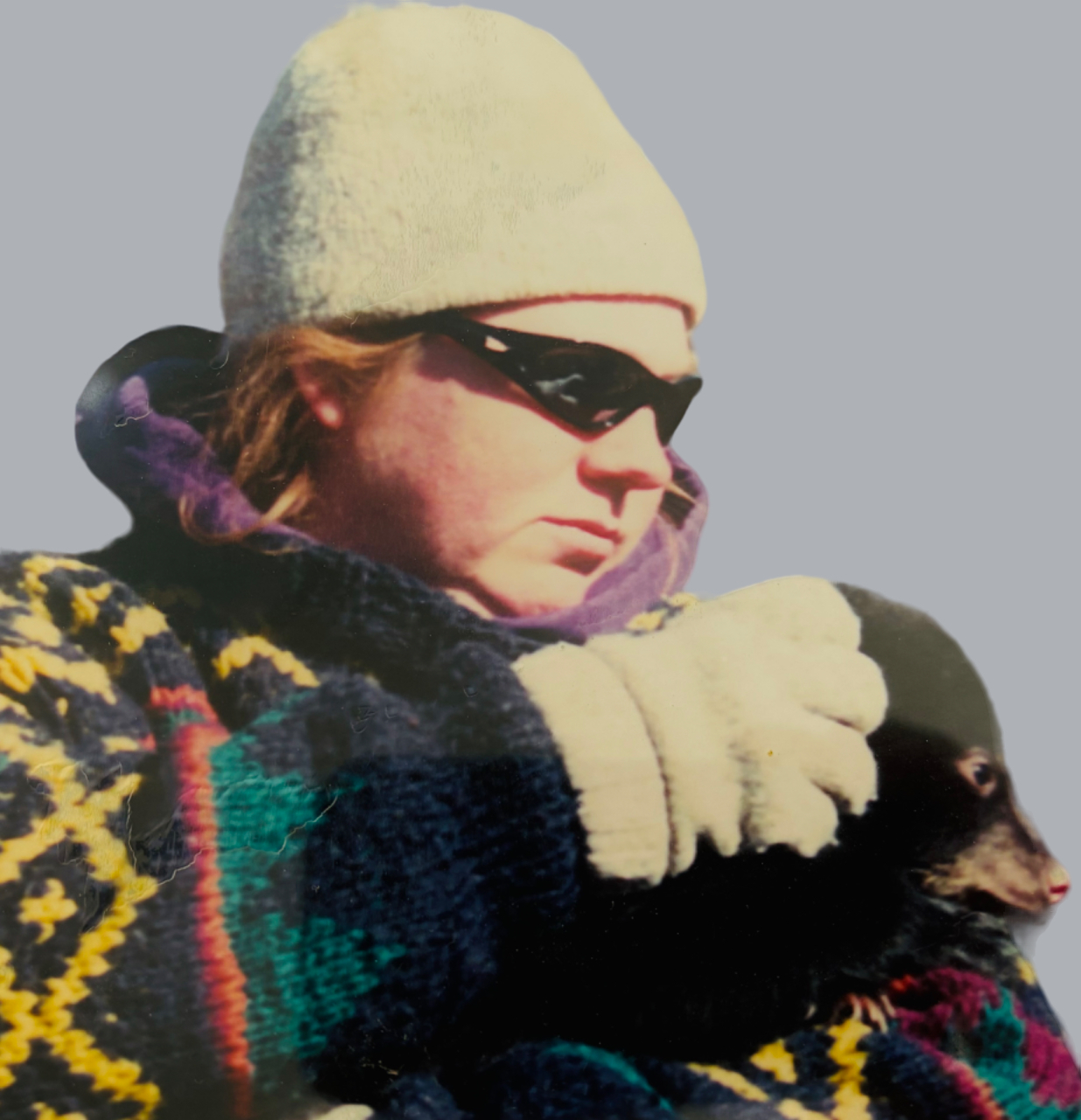Many people, even doctors, perceive that Tracey D’Imperio-Iasslett, NCC veterinary technician professor, has a lower quality of life than others around her. Some have even felt pity for her.
But, D’Imperio-Iasslett wants to set the record straight.
“Being hearing impaired is a blessing. It’s wonderful really,” D’Imperio-Iasslett says, noting that it’s a more peaceful world to live in without all of the outside noise and chaos. “This is my world, and I’m happy in it.”
She has sensorineural hearing loss, a permanent condition that occurs when the inner ear (cochlea) or the auditory nerve is damaged. D’Imperio-Iasslett was first diagnosed with severe hearing loss in college, then diagnosed as legally deaf a few years later. The doctors were unsure whether she was born with the condition or if it was a result of childhood illness.
Growing up, D’Imperio-Iasslett would try to adjust in a hearing culture, until she couldn’t adjust anymore at the age of 15.
“I was considered not smart enough in school. I was deemed remedial. They’d assume I had a learning disability. Teachers would comment, ‘Oh, she never pays attention. She does her own thing. She doesn’t communicate well.’” D’Imperio-Iasslett always received “Unsatisfactory” on her report cards.
During a routine hearing exam, a school nurse saw something that D’Imperio-Iasslett couldn’t hide anymore. “I got all the audio cues wrong on the test that time,” she said. After that, she was set up with a speech pathologist who taught her how to annunciate words and read lips. “When they moved me to the front of the room, I was able to understand much more, and I got better scores and absorbed the material.”
Today, she uses programs like Otter.ai to translate voice to text, which is not as fatiguing as reading lips.
When it came time to choose a college and major, D’Imperio-Iasslett wanted to go somewhere that could accommodate her needs. She went to the New Jersey Office of Vocational Rehabilitation (OVR) and told them she was passionate about animals. “I don’t have to hear them, and we understand each other. I could be me, and there’s no judgment from them,” she said.
OVR found that Camden County Community College had a veterinary technician program, and the Mid-Atlantic Center for the Deaf could help her succeed. D’Imperio-Iasslett decided to enroll but not without pushback.
As the first person with hearing impairment to apply to the vet tech program, the college didn’t want to accept her into the program. The program director fought for her right to be a part of the program. “I’m so thankful for that. I knew if I failed, the college would have a ‘told you so’ moment. If I succeeded, then that would open the door to others like me who wanted to study in the program. I had to succeed.”
With tutors, note takers, and interpreters, D’Imperio-Iasslett had a community of people helping her to learn. She did exceptionally well and graduated from the program. She also worked as a student technician while she was attending, which gave her a first glimpse into the career. She loved it.

D’Imperio-Iasslett made her way to a veterinary hospital in East Stroudsburg, and she began venturing into wildlife rehabilitation. Today, she is International Wildlife Rehabilitators Council Certified. “I love wildlife and studied wildlife in the woods for 20 years,” she said. When she finds injured wildlife in her area, she brings them to the Pocono Wildlife Center.
“I couldn't always do the whole job description though, for instance, I couldn’t answer the phone.” While she had limitations in some areas, D’Imperio-Iasslett far excelled in others. “I could sense things about the animals that others couldn’t. For example, I can smell certain diseases like an abscess in an animal.”
People didn’t always see her strengths and were quick to judge. D’Imperio-Iasslett had clients who were impressed that she was “actually smart,” initially assuming the opposite because of her hearing loss. She was accused of cheating on tests when she scored higher than her hearing peers. She even had doctors dismiss the severity of her impairment.
“I had an Ear, Nose and Throat (ENT) doctor who wanted to see what level hearing loss I had.” D’Imperio-Iasslett can speak very well, something she credits to reading out loud from a young age. With hearing loss, the part of the brain responsible for speech become impaired over time, so, she practiced speaking every day. “The doctor said someone with my vocabulary could not have that much hearing loss, and I must be lying,” she said.
D’Imperio-Iasslett’s family always believed in her. Both her husband and son know American Sign Language (ASL), and her son proudly calls himself CODA (Child of a Deaf Adult).
In 1996, after starting as a tutor at the Pocono campus, she got involved with the new veterinary technician program at NCC. She now teaches as an adjunct in the program and is a mentor for deaf and hard-of-hearing students.
“Part of my plan was to be the bridge the gap between hearing people and hearing-impaired people. I’m very lucky I ended up in this program at NCC because the faculty and staff didn’t focus on my deafness. They embraced my knowledge, and I was seen as an asset in that I worked so hard for my education.”
D’Imperio-Iasslett tells her students that it’s okay if they don’t get it. She says, “I didn’t either, but we will figure it out together. I struggled. We all struggle,” which is encouraging for all students as they find their path in the world.